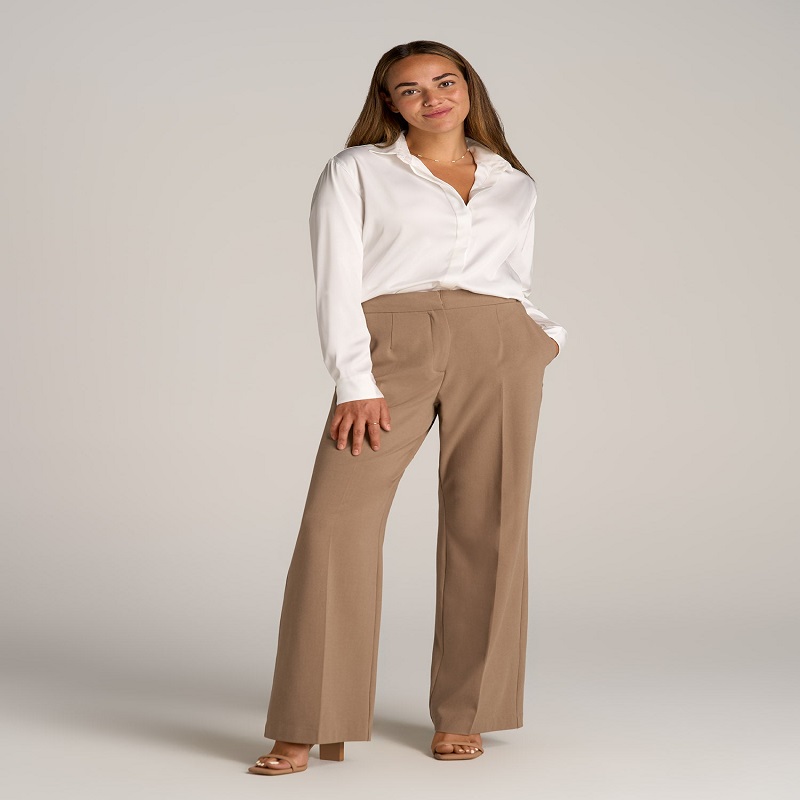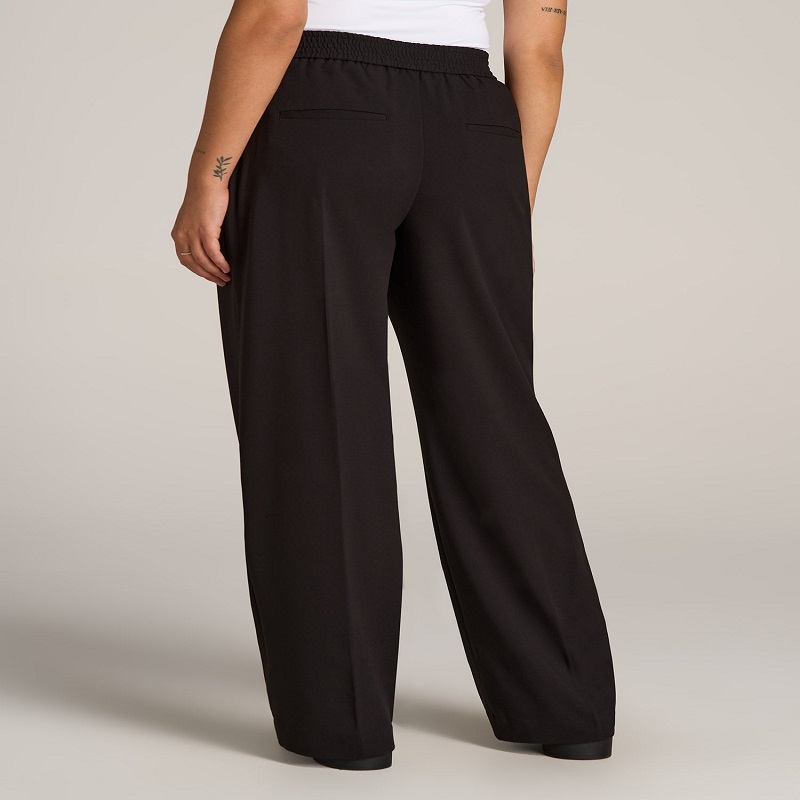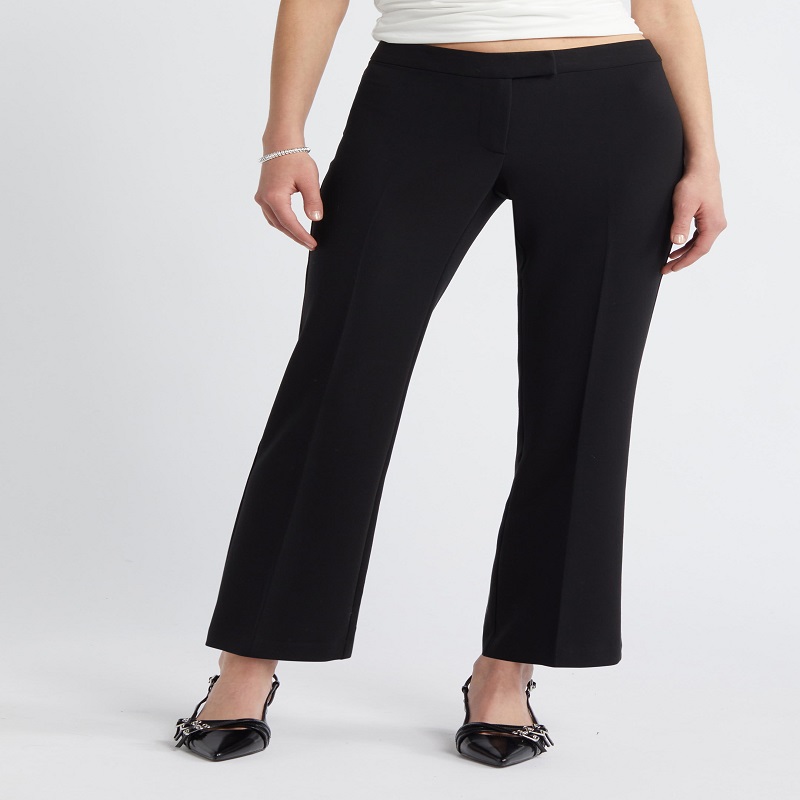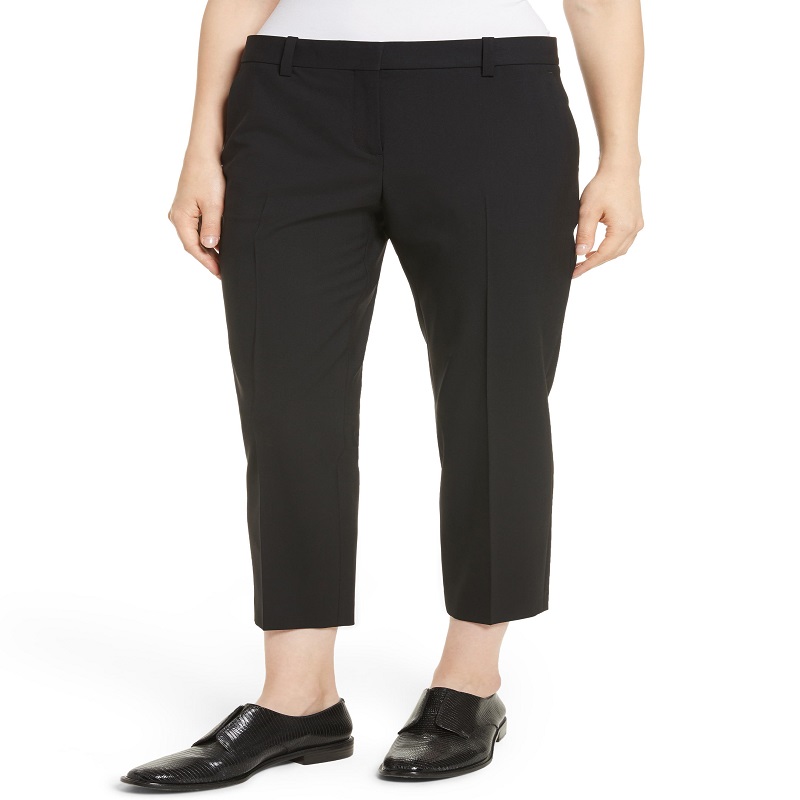How to iron dress pants? Ironing dress pants is an essential technique for achieving a polished and refined appearance, ensuring that the garments maintain a professional and pristine look suitable for business settings, formal occasions, and stylish ensembles. Through proper ironing methods, individuals can effectively remove wrinkles, creases, and fabric imperfections, ensuring that dress pants reflect a sophisticated and well-maintained aesthetic. In this comprehensive guide, we will explore practical tips, fabric considerations, and techniques to help individuals master the art of ironing dress pants, offering insights into achieving a crisp, polished, and professional appearance for diverse settings and occasions.

Understanding Fabric Care and Ironing Requirements
Selecting the Appropriate Ironing Equipment:
Choose a high-quality steam iron with adjustable settings and a reliable steam function that accommodates various fabric types, offering versatile, adaptable, and effective ironing capabilities suitable for optimizing the appearance and condition of dress pants.
Evaluating Fabric Composition:
Assess the fabric composition and care label instructions of dress pants to determine the appropriate ironing settings, ensuring that the fabric type, finish, and construction align with the iron’s temperature levels, steam application, and suitable techniques that maintain garment integrity and appearance.
Adapting to Specific Fabric Types:
Adapt ironing techniques and settings according to specific fabric types, blending appropriate temperature levels. Steam application, and tailored ironing methods suitable for materials such as wool, cotton, linen, viscose, synthetic blends. And delicate finishes, ensuring effective, fabric-specific ironing results tailored to the specific requirements of each material.
Practical Ironing Techniques for Dress Pants
Preparing the Ironing Area:
Set up a clean, level ironing surface equipped with a sturdy ironing board, ensuring a spacious. Unobstructed area that provides ample room for maneuvering the dress pants, accommodating effective, unimpeded ironing techniques and fabric finishing.
Ensuring Proper Garment Preparation:
Inspect the dress pants for dirt, stains, or residual debris, addressing any fabric imperfections through spot cleaning, pre-treatment, and fabric conservation methods before proceeding with ironing, ensuring that the garment is in a suitable condition for effective, optimal ironing results.

Utilizing Steam for Effective Results:
Employ the steam function of the iron to release wrinkles, sanitize the fabric, and achieve a polished, crease-free appearance, effectively addressing fabric imperfections and ensuring that the dress pants reflect a refined, professional appearance conducive to diverse settings and occasions.
Implementing Precision Ironing Techniques:
Employ precision ironing techniques, such as long, smooth strokes, strategic fabric positioning, and gradual temperature adjustments to ensure effective, comprehensive wrinkle removal, fabric smoothing, and crease definition tailored to the specific design and construction of dress pants.
Addressing Specific Areas and Creases:
Focus on specific areas such as pocket linings, seams, waistbands, and cuffs, addressing delicate and intricate elements of the dress pants to ensure comprehensive, professional ironing results that enhance the garment’s refined appearance and ensure a polished, sophisticated aesthetic.
Practical Considerations and Maintenance Tips
Verifying Garment Integrity:
Verify the integrity of the iron dress pants, assessing the fabric, construction, and finish for signs of fabric damage, alteration needs, or areas that require repair or professional attention, ensuring that the garment undergoes effective, professional maintenance tailored to its specific requirements.
Adapting to Varied Design Elements:
Adapt ironing techniques to address varied design elements, such as pleats, creases, pockets, and tailored features, ensuring precise, effective ironing methods that reinforce the garment’s original silhouette, construction, and fabric-specific requirements, preserving the integrity and appearance of the dress pants.
Ensuring Proper Storage and Care:
Store the dress pants in a clean, ventilated environment suitable for preserving fabric integrity, garment appearance, and professional ironing results, ensuring that the pants maintain a polished, refined appearance conducive to professional settings, formal occasions, and fashion-forward ensembles.

How to store dress pants
Efficiently organizing and storing dress pants is essential for preserving garment integrity, optimizing closet space. And ensuring that the pants maintain a polished and refined appearance over time. Through thoughtful organization and strategic storage solutions. Individuals can effectively minimize wrinkles, creases, and fabric distortion. Ensuring that the dress pants remain in a pristine condition suitable for professional settings, formal occasions, and stylish ensembles.
Practical Organization Techniques for Dress Pants
Categorizing by Style and Color:
Categorize dress pants by style, fit, color, and fabric type to facilitate efficient organization. Ensuring that the pants are arranged according to specific attributes that cater to varied wear preferences, outfit combinations, and personal style expressions.
Utilizing Coordinated Hangers:
Utilize coordinated, slimline hangers to hang dress pants, ensuring consistent height and uniformity within the closet, facilitating seamless organization and efficient use of closet space. Ensuring that the pants maintain a refined, streamlined appearance that accommodates easy retrieval and outfit coordination.
Implementing Drawer Dividers and Inserts:
Implement drawer dividers and inserts to organize folded own pants in drawers, providing distinct compartments for individual pairs, ensuring that the pants remain organized, accessible, and well-maintained, preserving the garment integrity and promoting easy identification and retrieval.
Arranging by Season and Occasion:
Arrange dress pants by season, occasion, and frequency of wear to facilitate efficient access, adaptability, and versatile wardrobe ensembles, ensuring that the pants are organized according to varied wear needs and adaptable outfit combinations suitable for different settings and occasions.
Strategic Folding Techniques for Dress Pants
Utilizing Filing and Folding Methods:
Employ the file-folding technique to fold dress pants, ensuring that the garment maintains a polished, wrinkle-free appearance conducive to efficient storage, easy access, and effective preservation of garment integrity, providing a streamlined, space-saving method suitable for compact storage solutions.
Folding According to Wear Frequency:
Fold dress pants according to wear frequency and wardrobe rotations, ensuring that the pants remain well-maintained, accessible, and appropriately managed in the wardrobe, accommodating varied wear preferences and adaptable storage solutions suited for diverse outfit combinations.
Space-Saving Storage Solutions
Incorporating Vertical Storage Solutions:
Optimize closet space by incorporating vertical storage solutions, such as adjustable shelving, hanging organizers. Or tiered garment racks that facilitate efficient dress pant organization. ensuring space-saving solutions that accommodate varied storage needs and adaptable wardrobe management.
Utilizing Rolling and Compression Techniques:
Utilize rolling and compression techniques to store dress pants in luggage, travel organizers, or compact storage containers. Ensuring efficient, space-saving solutions suitable for accessing and maintaining dress pants during travel, storage, or compact wardrobe arrangements.
Adaptable and Seasonal Wardrobe Rotation
Implementing Seasonal Wardrobe Rotation:
Rotate dress pants seasonally to accommodate varied weather conditions, interchangeable styles. And adaptable outfit combinations, ensuring that the pants remain well-organized, accessible, and suitably managed according to seasonal weather fluctuations and wardrobe requirements.
Adapting Storage Solutions to Lifestyle Needs:
Adapt storage solutions according to lifestyle needs, travel requirements. And versatile wardrobe ensembles, ensuring that the dress pants are well-maintained, accessible, and effectively managed according to diverse. Adaptable storage needs conducive to varied outfit combinations and lifestyle preferences.
Preserving Garment Integrity and Appearance
Maintaining Clean and Well-Ventilated Storage:
Store dress pants in a clean, well-ventilated environment that ensures garment integrity, fabric preservation. And polished appearance, accommodating space-saving solutions that facilitate well-maintained. Refined pants suitable for professional settings, formal occasions, and versatile ensembles.
Regular Maintenance and Inspection:
Regularly inspect the organization and storage of dress pants to ensure that they maintain a polished. Refined appearance, fabric integrity, and efficient access, accommodating adaptable storage solutions that align with wardrobe needs. Outfit combinations, and garment preservation conducive to versatile, professional ensembles.

Conclusion
In conclusion, mastering the art of ironing dress pants involves understanding fabric care, garment preparation. And effective ironing techniques that ensure a polished, refined appearance suitable for professional settings, formal occasions, and stylish ensembles. Through practical tips, fabric considerations, and precision ironing techniques, individuals can achieve a crisp, crease-free. And professional appearance for their dress pants, reflecting a sophisticated. Well-maintained aesthetic that aligns with contemporary fashion sensibilities and versatile wardrobe needs. Through thoughtful fabric care and tailored ironing techniques, dress pants can maintain a pristine. Refined appearance that embodies a polished, professional aesthetic suitable for diverse settings and occasions. Reflecting a commitment to meticulous garment care and ensuring a sophisticated, well-groomed appearance.
Tags: dress pants, Pants, women's pants